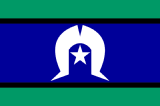The Foster Care Association of Victoria believes respite care can add strength and relief to any home-based care placement. It is very important that carers, their agency, and Child Protection establish the potential need for respite early in the child’s care planning; and monitor this during the placement through regular Care Team Meetings and carer supervision.
It is important to note that a decision to place a child or young person in respite care on a regular basis is one that requires case planning endorsement by the Department of Families, Fairness and Housing.
Respite for a child, subject to child protection involvement and being cared for by registered Foster carers within a funded home-based care placement.
Respite for a child in kinship care as part of an endorsed case plan, where child protection has assessed the respite carer as suitable to provide for the care of a child, including the undertaking of mandatory screening processes.
Respite for a child not subject to Child Protection involvement (voluntary) being cared for by registered foster carers within a funded home-based care placement.
Where a child is subject to child protection involvement and is being cared for by a registered foster carer within a funded home-based care placement, or by a Department assessed and approved kinship carer, the respite carer will receive the same care allowance rate as the primary carer.
The care allowance provides a financial contribution towards the day-to-day costs of caring for a child.
Where a child or young person is being cared for by an assessed and approved respite carer, the respite carer will receive the same care allowance as the primary carer for an approved period (except therapeutic foster care if the respite carer has not attended therapeutic training).
Respite placements of seven consecutive days or less will automatically receive a dual care allowance.
Respite placements of eight days or more will require specific approval for a dual care allowance.
For respite periods exceeding a total of 28 days in a calendar year, the care allowance will be provided to the respite carer only, unless exceptional circumstances apply.
Where an agency intends to seek dual care allowance for registered foster carers caring for a child with child protection involvement, this provision must first be discussed with the relevant Placement Coordination Unit (for any respite placement greater than 7 days) before the relevant forms are submitted to the Department’s Care Allowance Helpdesk for processing.
Discussions regarding the provision of dual care allowance should be first discussed with your agency. Financial queries regarding care allowances should be directed to the Care Allowance Helpdesk, Department of Families, Fairness and Housing, on 1300 552 319.


